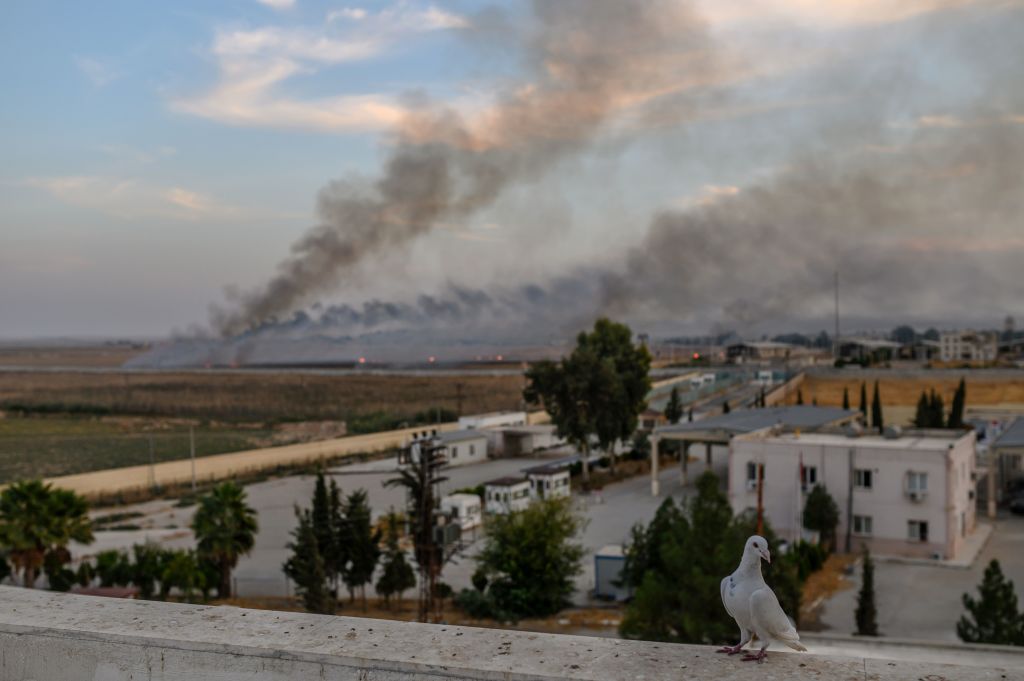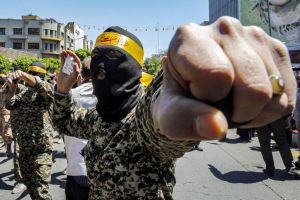The White House’s decision to move aside and allow a Turkish assault in northeast Syria highlighted the morass that is the US’s foreign policy in the Middle East. Criticism of the decision, rebuked as ham-fisted and reckless, was bipartisan. This is the kiss of death for the Kurds (the US’s allies, who are left defenseless), the largest ethnic minority in Syria, and one of the victims of Turkey’s human rights abuses that have spanned centuries.
Lost in the turbulent tangles of the news is another one of Turkey’s victims, a population of Christians who are a distinct ethnic group that has been historically targeted by the Ottoman Empire. The Assyrians were slaughtered alongside the Greeks and Armenians in the genocide of 1915 and then again in 1933 during the Simele Massacre, at the hands of Arab-Iraqi nationalists. Their persecution continued throughout the century, foisting upon them a life of transience and displacement. Today, the diaspora population is larger than the population of Assyrians in their homeland, which is parts of northern Iraq, Syria, Turkey and Iran.
Syria’s Christians and Yazidis fear that with Turkey’s move into the region, they will be targeted and ethnically cleansed, a reasonable prediction given Turkey’s history of genocide of minorities. On Wednesday, Turkey began its attacks in Qamishli, a town inhabited by Kurds and the descendants of Assyrian refugees of the 1915 genocide.
Assyrians in northeast Syria, however, feel overlooked in the coverage and dialogue surrounding the matter. Ethnic and religious minorities in the region are frequently not considered in geopolitical decision making, an omission with dire consequences that have lasted generations. If mentioned in talking points, politicians will often generalize them as ‘Arab Christians’, or tokenize them to appeal to an Evangelical voting base, as President Donald Trump has done both on the 2016 election campaign trail and while in office. He recently called for an ‘end to religious persecution’, but he essentially allowed Turkey carte blanche to carry out the same crimes against Assyrians that they have in the past.
Today, Assyrians have no proper burial site for the victims of the 1933 Simele Massacre in Iraq, because the relatives of the deceased are prohibited from creating one. Instead, their bones can be seen protruding through the ground, scattered in formations of mass graves. Even in unjust, violent death, the Assyrians are not afforded a memorial. Their erasure from history books and the land they inhabit is purposeful.
They have little rootedness or place because it’s been repeatedly denied to them, and their survival is threatened not only by genocide but by the conflicts that catch them in the crossfire, such as the perpetual war that has consumed the Middle East. This population of Christians is left to defend its own existence with no consistent, benevolent allies in their corner besides advocacy groups abroad.
I spoke to Assyrian Policy Institute’s director, Reine Hanna, before the bombing of Qamishli began. She lamented the White House’s recent decision, saying that API is ‘deeply concerned by the US withdrawal from northern Syria and fear the planned Turkish advance into the region will cause greater instability. Further conflict in these areas will undoubtedly lead to the disappearance of marginalized groups such as Assyrians and Yazidis.’
On September 26, Hanna appeared on a panel at the US Commission on International Religious Freedom’s hearing, titled ‘Religious Minorities’ Fight to Remain in Iraq‘. ‘Prior to 2003, the Assyrian population in Iraq was approximately one-and-a-half million,’ she said in her statement. ‘Today, that number has dropped to less than 200,000. Assyrians have endured profound discrimination and targeted violence, both for their Christian faith as well as they distinct ethnic identity, rooted in the ancient history of Iraq.’
In Defense of Christians, a Washington-based non-profit that serves the historic Christian communities of the Middle East through advocacy, released a statement urging the White House reinstate sanctions on Turkey should it target Christians or Yazidis. ‘Religious minorities in northeast Syria have reason to be wary of the Turkish government, especially after Turkey invaded Afrin in 2018 using Islamist militias and forced over 300 Christian families to flee,’ the release says.
You do not need to speak to many Assyrians, whether of the diaspora or of northeast Syria, to learn that their suffering is often in silence, unable to break through to the listening ears of the international community for recourse. ‘US policy in northern Syria has consistently failed to account for the specific needs of ethnic and religious minorities, and this latest decision only cements that legacy,’ Hanna tells me. They are directly and immediately affected by the decisions coming out of Washington, as our country’s 21st century track record of interventionism in the region also demonstrates. As Assyrians continue to flee their homes, they depend on the awareness of the international community of their existence and strife to inform prudent decision making. An entire population hangs in limbo.



















